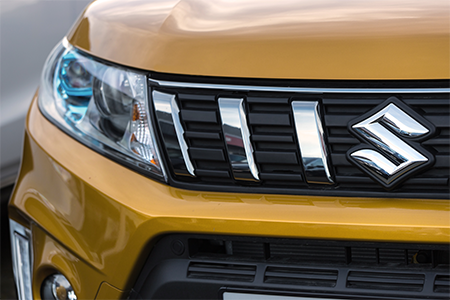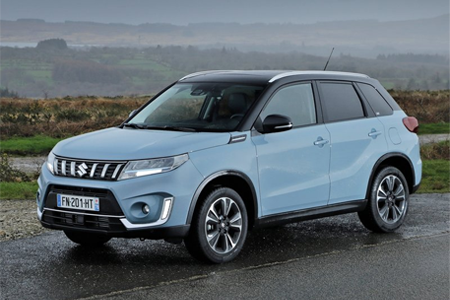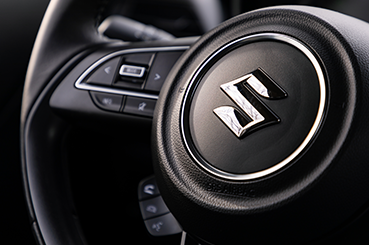Suzuki Motor Corporation, a stalwart in the automotive industry, has continually exemplified innovation and reliability since its inception in 1909. Led by Managing Director Takanori Suzuki, the company has established itself as a global leader in manufacturing automobiles, motorcycles, marine outboard engines, and all-terrain vehicles (ATVs).
Suzuki is a name that inspires confidence and a sense of adventure on the road. But this Japanese giant’s story goes beyond sleek car designs and powerful engines. Let’s delve into the fascinating history of Suzuki and explore what makes them a leader in the automotive world.

Who owns Suzuki?
While headlines might mention Toyota as an owner, Suzuki remains a fiercely independent company. Though Toyota holds a significant share (4.94%) in Suzuki, it’s crucial to understand this is a strategic partnership, not a takeover.
Both companies operate independently, with the cross-ownership structure fostering collaboration without compromising their unique identities. Interestingly, Suzuki also owns a small stake (0.2%) in Toyota, solidifying this spirit of mutual respect and shared vision for the future of mobility.
Is Suzuki a Japanese company?
The Suzuki story begins not with roaring engines but with the rhythmic clatter of looms. Founded in 1909 by Michio Suzuki in Hamamatsu, the company initially thrived as the Suzuki Loom Works, supplying weaving looms for Japan’s booming silk industry. For three decades, they played a vital role in this sector.

However, with a keen eye for innovation and a desire to diversify, Michio Suzuki decided to venture into a new territory – automobiles. This pivotal decision in 1937 marked the beginning of Suzuki’s incredible journey as a renowned automaker.
While Suzuki is quintessentially Japanese, it maintains its autonomy while benefiting from a minority ownership by Toyota, fostering collaboration without compromising independence.
What was the first Suzuki car?
The year was 1955, and Suzuki unveiled a game-changer: the Suzulight. This wasn’t just their first car; it was a testament to their innovative spirit and a glimpse into the future of Suzuki.
The Suzulight broke away from the conventional and embraced a revolutionary design philosophy. This small, lightweight, and fuel-efficient car was a marvel of engineering, perfectly suited for navigating the bustling streets of post-war Japan.
Suzulight’s success not only solidified Suzuki’s position in the automotive industry but also laid the foundation for its reputation as a specialist in creating exceptional compact cars.
How many cars have Suzuki sold?
Fast forward to today, and Suzuki has achieved a remarkable milestone – selling a staggering 80 million cars worldwide by August 2023. This incredible feat is a testament to their dedication to quality, innovation, and a deep understanding of what drivers truly need.

Popular models like the Swift, a favourite for its sporty handling and impressive fuel economy, the Vitara, a compact SUV known for its versatility and off-road capability, and the legendary Jimny, a true adventurer’s companion beloved for its ruggedness and go-anywhere spirit, have all played a significant role in propelling Suzuki to this impressive milestone.
Where are Suzuki cars made?
Suzuki’s success isn’t limited to a single location. They’ve established themselves as a global manufacturing powerhouse with a presence in 23 countries. This strategic approach allows them to cater to diverse markets and adapt to regional preferences.
Different Suzuki models are produced at various factories, ensuring optimal production efficiency and a deep understanding of local needs. For instance, Magyar Suzuki in Hungary is a notable example, playing a key role in manufacturing popular models like the Ignis, known for its practicality and funky design, and the Swift, a testament to Suzuki’s continued commitment to compact car excellence.
What does Suzuki make besides cars?
While cars are undoubtedly the cornerstone of Suzuki’s success, they are far from the only game in town. Suzuki is a diversified manufacturer with a commitment to fulfilling a wide range of transportation needs. Motorcycle enthusiasts will find a thrilling selection of Suzuki bikes renowned for their power, handling, and performance.
Furthermore, out on the water, Suzuki’s marine outboard engines are a testament to their commitment to innovation and reliability. Their engines have even powered boats in prestigious events like the London Olympics, a true mark of their quality.
Finally, for those seeking adventure off the beaten path, Suzuki covers customers with their all-terrain vehicles (ATVs), which offer unparalleled capability and durability.
Are Suzuki cars reliable?

When it comes to choosing a car, reliability is a top priority for many drivers. Suzuki understands this and has built a reputation for producing vehicles that are not only exciting to drive but also built to last.
In the 2023 WhatCar? Reliability Survey, Suzuki emerged as the undisputed champion. Owners praised their cars for having very few faults, even after years of ownership. Additionally, repairs tend to be inexpensive, making Suzuki a budget-friendly choice without compromising on quality. The Vitara’s exceptional 99.3% reliability rating in the small SUV category and the Swift’s impressive 98.1% score further solidify Suzuki’s position as a leader in dependable vehicles.
This dedication to reliability extends beyond cars. Suzuki motorcycles, outboard engines, and ATVs are all known for their durability and ability to perform flawlessly under demanding conditions. Whether you’re navigating city streets, cruising down the highway, exploring uncharted territories, or conquering the waves, you can count on Suzuki to deliver a smooth, reliable experience.
Suzuki Motor Corporation stands as a testament to the enduring values of innovation, reliability, and customer satisfaction. From humble beginnings in the textile industry to becoming a global automotive powerhouse, Suzuki continues to push boundaries, setting new standards for excellence in every endeavour. As Suzuki charts its course into the future, its legacy of quality craftsmanship and unwavering commitment to its customers remain at the heart of its ethos.




